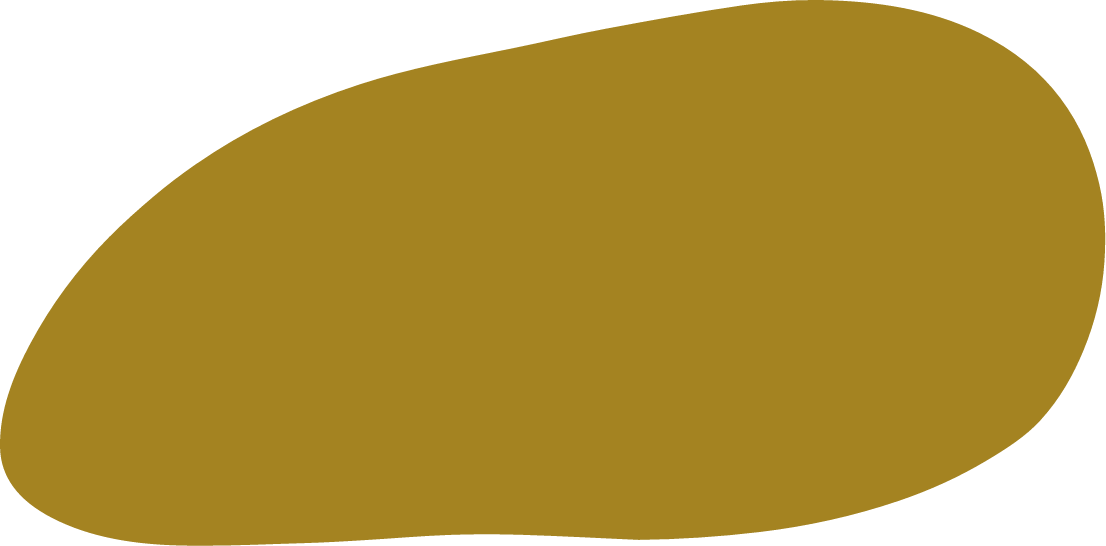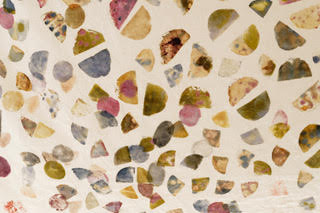In Pink as a Cabbage / Green as an Onion / Blue as an Orange, Aslı Çavuşoğlu uses natural materials, as well as organic weaving and dyeing methods to produce the patterned surfaces of the thirteen textile works arranged in a polyrhythmic composition, spread across two rooms of the Villa Kapandji.
All the fabrics, threads, and handmade papers were dyed using natural, plant-based dyes from fruits, vegetables, and flowers, grown in Turkey, in sustainable gardens and farmlands. Each fabric bears the name of a unique agricultural initiative, while the materials and representations correspond to the production methods, practices, and policies characterizing each of these initiatives.
The shift to collective farming, ethical food production and distribution, as well as to responsible consumption, has emerged as an act of political resistance in an era of rapid urbanisation and industrialisation. The demand for land reappropriation intensified following the Gezi Park events of 2013 in Istanbul, when a wave of demonstrations contested the construction of a shopping mall in the park, leading to massive anti-government protests that were met with violent suppression. Green spaces were subsequently transformed into sites of collective demands, the sown soil becoming a symbol of fertile social fermentation. To this day, the foliage, sprouts, and fruits fuel the visions and actions of communities for a just and sustainable future.
One of Çavuşoğlu’s textiles is inspired by a residential initiative in Istanbul’s Roma Bostani (Roma Gardens), an act of resistance, an attempt to rescue the Roma Community Garden. The initiative represents a fresh, rural-political model of decision-making by and for its own residents. Meanwhile, just a few kilometres to the east, urban farmers, men and women, produce and sell lettuce, tomatoes, and all kinds of vegetables, following a long tradition of cultivation in the endangered Yedikule Bahçe (Yedikule Gardens). In the closed community of Urfa, a group of women succeed in establishing a women’s cooperative for pepper production and distribution, called Mesopotamia Women’s Cooperative, organizing a safe community for local women. While, in Devrek, 52 women farmers create the Devrek Sun Agricultural Development Cooperative rally, in an effort to ensure a balanced ecosystem and sustainable production of healthy food, by revitalizing the dwindling agricultural and livestock farming sectors.
These varied initiatives include collectives that create communal farms, and training centres, teaching agroecology and permaculture practices; local communities organising seed banks, and operating mills in an effort to save and preserve a region’s endangered cereals; as well as ethical cooperatives of limited production, that market their produce only to demonstrably responsible distributors and consumers.
In Pink as a Cabbage / Green as an Onion / Blue as an Orange, the projects take the form of an unexpected palette of earthy colours and quiet tones, that however retain the liberating power of the collective imagination. Colour―so central in Çavuşoğlu’s works―functions here as a narrative tool for the stories of these initiatives, thriving in both urban centres and the periphery, extending their roots deep into the land, creating networks, reclaiming spaces, and transforming landscapes.
The title of the work is borrowed from a work by surrealist poet Paul Éluard, to suggest the key role our imagination plays in working towards a common future, while the works themselves position, as curator Özge Ersoy points out in her text regarding the series, “small-scale farming initiatives not only as sites of everyday resistance, but also as value systems that will play a central role in the politics of our future.”












